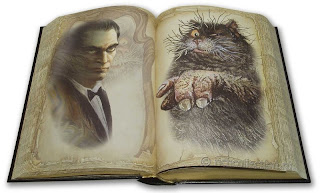Russkoye Slovo:
Berlin, 11 March (24 March New Style)
The friendly relationships between Serbia and Montenegro are getting better. There are reasons to think that some of these days the two governments will reach a consensus.
Warsaw, 11 March
The bomb layed by terrorists at the door of the apartment of a wholesale shoe trader Vollmann has exploded. The explosion caused disaster on the stairway and in the apartment, where only one housemaid was present at the moment. She was shocked and thrown aside, but hurt only lightly. Vollmann had received threatening letters from the terrorists, but refused to obey their demands. The terrorists escaped.
Baku, 11 March
The international bank received a 3,000 rubles transfer for the editor of the Armenian magazine "Barirul". The money were erroneously delivered to the editor of the Tatar magazine "Bayilul", who received the money and fled.
Tiflis, 11 March
Armenian newspaper Vtakaya informs that more than 1,000 soldiers of the Turkish army were deployed in 7 villages of the Turkish Armenia. The arrival of Zekki-pasha, the organizer of the Sassoun massacre, is expected. The Armenians flee in panic.
Odessa, 11 March
Glinsky-Kazarinov, who was elected by the reactionary majority of the city Duma to the Ministry Commission on the reform of the city statute, made a statement at the meeting of the Union of Real Russian People that he will support the full autonomy of the city self-government. He said also that he is the proponent of the equality of Judaists and Christians in the city elections. The newspapers of the Black Hundreds call him a traitor. It was decided to ask the ministry to replace Kazarinov with another person, to pass a non-confidence motion against Kazarinov and to proclaim his views harmful for the interests of the state and for the Russian population of Odessa.
Mortality in Moscow
The last statistical data demonstrate a sad phenomenon. The mortality among the Moscow population that was slowly decreasing for decades, suddenly peaked. In the last year, 33,128 people died in Moscow, while a year earlier, there were only 28,770.
Peterburgskaya Gazeta:
Golden wedding anniversary
Goldenblüm family recently celebrated the 50th wedding anniversary. Doctor of philosphy Goldenblüm is a German citizen. To their surprise, the couple received from Emperor Wilhelm II congratulations and a silver medal with portrait of the Emperor and the Empress. G.Goldenblüm has been living in our capital for many years.
Rare anniversary
Today, on 12 March (25 March New Style), the staff of the Mariinsky hospital honours an old woman, Elena Georgiyevna Vasilyeva, who has been working at the hospital's laundry for fifty years. During this half of century she washed the clothes of the most patients suffering from the most dangerous infections, like equinia and pox, and survived eight epidemics of cholera. The director of the hospital will present a congratulatory letter, the colleagues will present an icon, etc.
Starosti.ru
















